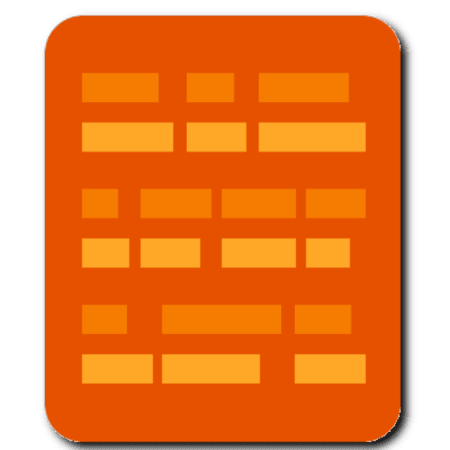
The Potential Of Software Supported Language Learning
Share
100 Years Of Language Learning
Existing courses, books and institutes that teach languages are all set up in the same way. They are designed for a scholastic learning structure. They offer tidbits of language learning over a certain period, often years.
The basic atoms of language study used are pieces of texts, lists of words, and hints of rules. The rule taught is used in the text and does something with a word from the list. For example, John enters a restaurant and orders something, which gives us a bunch of words associated with a restaurant, and a grammar rule explaining for example the conditional tense (I would like...).
Even online courses are set up to offer little bits of texts, a word list to learn, and often even leave out the grammar, which is not a bad thing as long as they teach the student different noun or verb forms in a different way, for example different occurrences.
When learning in a group this system will be too slow for one and too fast for the other, and boring for both. Self study books or language learning sites offer more flexible learning, but suffer from the same problem.
The courses are long and time consuming and they don't guarantee any retention of the material. These methods might be ideal for subscription based fees but not for fast language learning.
Ever tried to read a foreign language book halfway or after finishing a foreign language course? 99% chance that it was a no go. Most words are unfamiliar. Why? Simply because A. That course didn't teach you enough words or word comprehension and B. The words it taught were not retained!

Why Are Language Courses Inefficient?
The issue that you have after finishing a language course is simply this: your vocabulary is not big enough, or, more complicated, the headword- or root-vocabulary you know has not been used enough so you can not deduce the meanings of unknown words which you encounter which have familiar roots.
- Vocabulary. A standard course to learn language X has perhaps 500 to 1000 words, and at most 2000 words. The material given is not adequate for teaching you to recognize word forms of the headwords or roots that you learned. University level education will make you fluent, but it takes you quite a long time, lots of money, and full time study to get there.
- Retention. Even if the material offered is in the high end of the vocabulary spectrum, and offers a lot of texts to practice understanding your new found vocabulary, there is no reason at all that you will retain this vocabulary in your memory. You might have filled out a self study test correctly after cramming a word list, but you will have forgotten 75% of these words after a few weeks.
- Emotion. Three main emotions or states of mind make people quit language studying. Boredom, feeling inadequate or powerless and lack of will or discipline. Every new chapter of a course that teaches you a language piece by piece, will make you feel a dummy all over again, and initially curious but eventually groaning you'll set yourself to learn another list of new words. This evokes boredom, feelings of inadequacy and it eats away your will to study and your discipline. But since this is highly personal we'll drop this one.
So the biggest hurdles in existing linguistic education methods are vocabulary, the time spent to meet this vocabulary, the rate of memorizing this vocabulary, and the ability to use this vocabulary.
The ideal tool to master foreign languages would teach you a lot of vocabulary in a short time and make sure that you retain this vocabulary. Enter Bermuda Word Foreign Language E-books.

Software And Linguistic Mastery
Using software it is possible to set up an educational program that eliminates the problems suffered by conventional programs. First of all, extensive reading and spaced repetition with flash cards are two existing methods that offer a foreign language student to master large amounts of vocabulary beyond regular courses.
Extensive reading means reading large amounts of texts and will teach you words in context of a story, which will make memorizing easier because of association. The thing holding back fast memorization unfortunately is the lack of translation in extensive reading. One is expected to read graded readers at ones level and only gradually learn more words. So extensive reading suffers from just that, being very extensive. You will need to read a million words to encounter low frequency words enough times to remember them.
A flash card spaced repetition system would see you (in the most time consuming case) create a set of flash cards (word on the front, meaning on the back) of words that you want to practice, and then practice these daily or weekly for a certain period until they're retained in your memory. Using flash cards with spaced repetition to memorize 5000 words means you will have to study loose and unconnected words or at best sentences 5000 times the number of "meetings" required to memorize them. That's pretty boring. Furthermore memorization isn't helped by association or story context, unless you go and think up something for every one of the 5000 cards.
The ideal combination would be to combine extensive reading and flash card spaced repetition. This is possible through software and this is exactly what Bermuda Word has been doing since 2006. We have taken long and interesting original foreign language texts, translated these word for word and added any explanations or free translations, and using special software integrated these into powerful e-books.
A Bermuda Word e-book allows you to read fast and feel powerful because every word is immediately known to you, and the software makes sure you memorize these words fast, using spaced repetition, and only for those words that do not occur enough times in the text, so very efficiently as well.
Because a Bermuda Word e-book makes learning to read and understand a foreign language very fast and efficient it enables you to learn a language in 10% of the time and with up to a 100% word retention. It literally means that starting off with a basic vocabulary and grammatic overview of the language you can become fluent in 30-60 minutes five days a week for two months.
